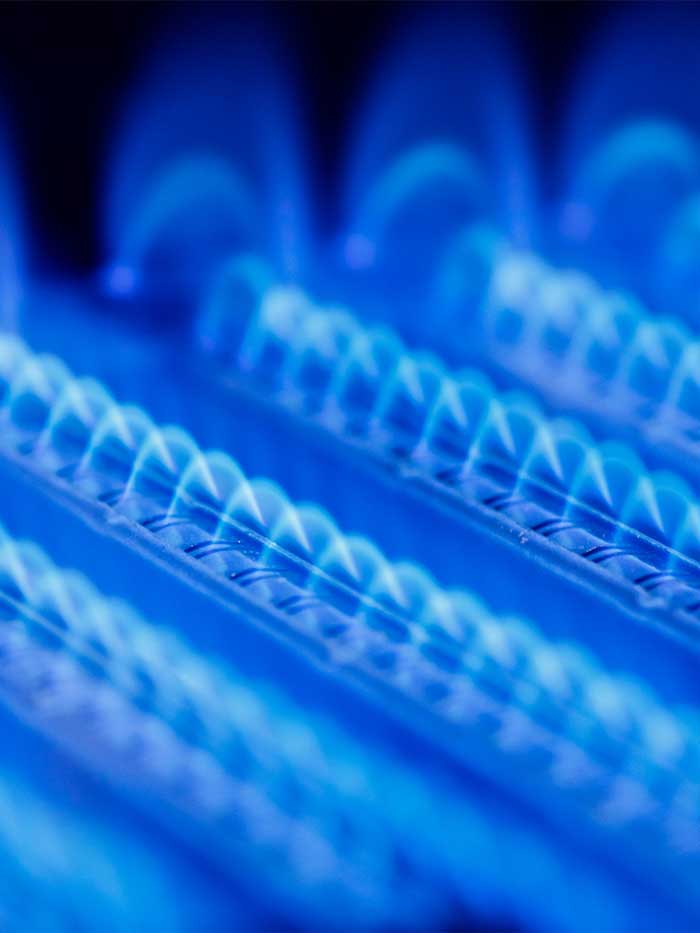Gas Safety Inspections Canvey Island
Gas Safety Checks, Landlords Certificates, CP12
Call – 01268 351075

TM Hughes, James the engineer came recommended a new boiler as the repairs require would be almost half the cost of new he was not pushy just a recommendation. We agree and he returned and replace the boiler within three days and return when i called as i was unsure about something, 3 visit within the space of a couple weeks he was very patient and so was mr Hughes when I called thank you both, and I couldn’t be happier.
Very efficient and friendly.
Very pleased with the result! John Hing. 6 Peartree Walk, Billericay.
Welcome, we are Gas Safe Registered Plumbers & Heating Engineers operating in Canvey Island. Our services include undertaking Gas Safety Inspections of rented properties and issuing CP12 certificates.
If you’re a landlord letting a property, you’re probably already aware of the gas safety rules and regulations and want to ensure your property is safe for your tenants and legal to let.
Gas Safety Inspections must be undertaken by certified Gas Safe Registered engineers every 12 months or at the start of each new tenancy, whichever event comes first.
The gas safety inspection ensures that your property’s gas system and appliances are safe for use. The accompanying CP12 certification proves to your tenants, insurers and letting agents that your property is safe and legal for letting.
Homeowner?
Gas Safety Inspections are not just for landlords. They are also optional for Homeowners who want to verify their gas system and appliances are safe.
The Gas Safety Legislation For Landlords
As a landlord, you are responsible for the safety of your tenants. The Gas Safety (Installation and Use) Regulations 1998 deal with landlords’ duties to make sure gas appliances, fittings and flues provided for tenants are safe.
Appliances, fittings and flues in a communal area which may be used by tenants are also included.
You are responsible for the maintenance and repair of flues, appliances and pipework provided for your tenants use by a Gas Safe registered engineer.
Although there is no prescribed timeframe for these duties, good practise would be the demonstration of regular, annual maintenance checks and subsequent repairs.
You are also responsible for ensuring an annual gas safety check is carried out within 12 months of the installation of a new appliance or flue, which you provide and annually thereafter by a Gas Safe Registered engineer.
You must keep a record of the safety check for two years and issue a copy to each existing tenant within 28 days of the check being completed and issue a copy to any new tenants before they move in.
Who Is A Landlord?
In relation to domestic gas under the Gas Safety (Installation and Use) Regulations 1998 (GS(IU)R 98), a landlord is anyone who rents out a property that they own under a lease that is shorter than seven years or under a licence.
Regardless of whether you are a landlord under GS(IU)R 98, you may be considered a landlord under other related legislation.
Landlords’ duties apply to a wide range of accommodation, occupied under a lease or licence, which includes, but not exclusively: residential premises provided for rent by local authorities, housing associations, private sector landlords, housing co-operatives, hostels rooms let in bed-sit accommodation, private households, bed and breakfast accommodation and hotels rented holiday accommodation such as chalets, cottages, flats, caravans and narrow boats on inland waterways.
Source hse.gov.uk
How The Gas Safety Inspection Works
First of all, contact us and book a time slot with one of our engineers. Please ensure adequate time before your current CP12 expires, or a new tenancy starts. (We always take note of expiry dates following a gas safety inspection and send out reminders two months before the expiry date, so landlords don’t miss the deadline).
An engineer will show up at the pre-booked time and date, presenting a valid Gas Safe ID on arrival.
Our engineer will inspect and test every appliance connected to the gas supply in your property.
Typical gas appliances found in rented properties include
Each appliance goes through a rigorous testing and inspection procedure which includes
- The burn rate (to ensure gas is burnt at the correct rate)
- Ventilation around the appliance
- The gas connection
- The appliance casing
- Safety devices on and within the appliance
- Flues and chimneys
- Pipework servicing the appliance
The engineer will also check the property’s gas supply and pipework to ensure everything’s in order.
If your property passes, the engineer will write your CP12 Certificate.
If your property or appliances fails on anything, the engineer may be able to make the necessary adjustments there and then to pass your property.
Otherwise, you’ll need to undertake the necessary repairs so we can pass the property.
If we can undertake the repairs (most we can), the engineer will write you a quote.
Once the repairs are done, the engineer can return and issue your CP12 Certificate.
The CP12 Certificate
The CP12 Certificate includes the following.
- The date of the inspection
- The landlords or letting agents name
- The properties address
- The gas engineer’s name and gas safe number
- A description and the location of each appliance
- A description and the location of each chimney and flue
- A list of safety defects found with appliances, flues, Chimneys, pipework and the gas supply
- Work undertaken to fix the defects found
- Confirmation that the safety check has included an examination of the matters referred to in paragraphs (a) to (d) of regulation 26(9) of the Gas Safety (Installation and Use) Regulations 1998
- The Gas Engineers signature
We will contact you with a reminder two months before the CP12 expires.

Hi, I’m Terry, the founder and owner of TM Hughes & Son Gas Services
Please get in touch to book an appointment or receive a free, no-obligation quote
Call – 01268 351075
Email – info@tmhughesandson.uk
0% Finance
For Boiler Installations & Repair








